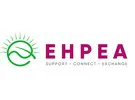The Ethiopian Horticulture Producer Exporters Association (EHPEA) on Thursday convened a launching event for its accredited TVET Training Institute, which is believed to augment the efforts being made by the Association to enhance the international competitiveness of the country’s horticulture industry, through capacity building and promotion of sustainable and responsible operation of the sector.
The Institute caters its services for local and international institutions working on agriculture, specifically targeting on unemployed youth, officials of agri-business establishments of the public and private sector, extension workers, unions and cooperatives, TVET instructors, farm managers, agronomists, storekeepers, compliance managers, supervisors, farm scouts, and extension workers among others.
EHPEA Training Center is the first of its kind here in the country with a focus on enhancing the competitiveness of Ethiopia’s horticulture industry, the TVET Training Institute pursues its cardinal strategic objective of bolstering operators’ capacity towards ensuring sustainability and the practice of smart agriculture.
Horticulture in Ethiopia
The horticulture industry in Ethiopia has been developed over the past 15 years towards a full grown player; and it has been able to put itself on the world map as one of the leading exporters of cut flowers. The sector has managed to generate more than three billion US dollar for the country so far, while creating meaningful employment opportunity for nearly 200 thousand young Ethiopians, both skilled and non-skilled, with women, particularly, being the prime beneficiaries of the sector. The knowledge and technology transfer in the sector and the trickle-down effects have also brought about significant contribution to the betterment and livelihood improvement of millions of Ethiopians.
The Ethiopian Horticulture Producer Exporters Association (EHPEA) was established in 2002, to primarily promote the interests of its members that are engaged in the production and export of cut flowers, fruits, vegetables, herbs, cuttings as well as vegetable seeds. With 120 members currently, EHPEA has been endeavoring to contribute to the country’s horticulture industry and help the sector boom, while effectively representing the interests of its members locally and globally.

Code of practice
As one of the Association’s interventions, the EHPEA Training Center has been offering trainings since its establishment on 2007 G.C to its members, supporting the practice and promotion of socially responsible and environmentally friendly operation, as well as building the capacity of members and pertinent stakeholders in the horticulture industry.
EHPEA also introduced its Code of Practice in 2007 as a voluntary initiative to guide, monitor, and communicate the Good Agricultural Practice (GAP) as well as Social and Environmental considerations by farms exporting flowers and cuttings worldwide. The Code has a total of three levels, including, Bronze, Silver (which is benchmarked with the international standard Global G.A.P), and Gold level which demands the farm to actively engage in Quality Management and Corporate Social Responsibility (CSR).
Worldwide institution
With its full potential, the EHPEA Training Center has now been upgraded and accredited as a TVET Training Institute, also becoming the first of its kind here in the country. With a focus on enhancing the competitiveness of Ethiopia’s horticulture industry, the TVET Training Institute pursues its cardinal strategic objective of bolstering operators’ capacity towards ensuring sustainability and the practice of smart agriculture. It will deliver tailor made trainings with practical linkage with the private sector for training and internship, which is of course believed to foster youth employment. The Institute caters its services for local and international institutions working on agriculture, specifically targeting on unemployed youth, officials of agri-business establishments of the public and private sector, extension workers, unions and cooperatives, TVET instructors, farm managers, agronomists, storekeepers, compliance managers, supervisors, farm scouts, and extension workers among others. EHPEA also introduced its Code of Practice in 2007 as a voluntary initiative to guide, monitor, and communicate the Good Agricultural Practice (GAP) as well as Social and Environmental considerations by farms exporting flowers and cuttings worldwide. The Code has a total of three levels, including, Bronze, Silver (which is benchmarked with the international standard Global G.A.P), and Gold level which demands the farm to actively engage in Quality Management and Corporate Social Responsibility (CSR).
EHPEA has, so far, delivered training to nearly 50,000 farm workers.
For more information:
Ethiopian Horticulture Producer Exporters Association (EHPEA)
info@ehpea.org
www.ehpea.org
